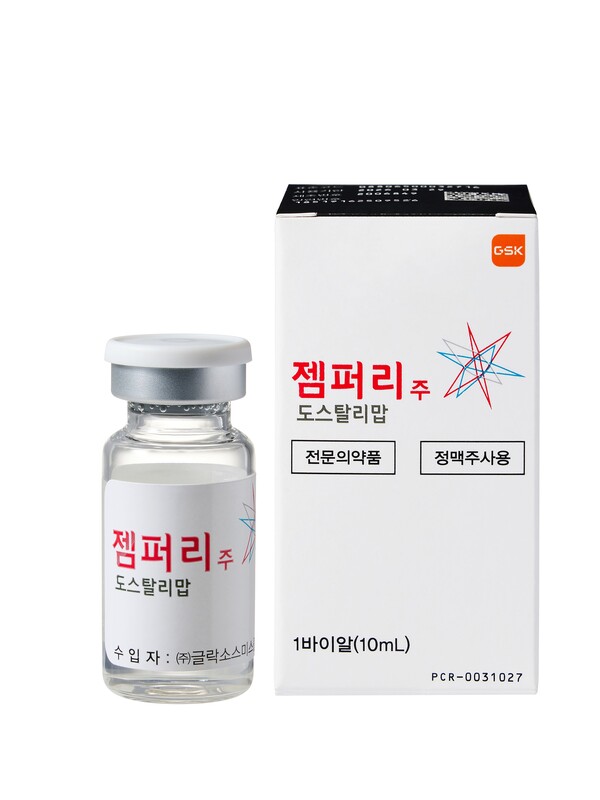GSK Korea's PD-1 inhibitor, Jemperli (dostarlimab), has been approved for health insurance coverage as a treatment for adult patients with newly diagnosed advanced or recurrent mismatch repair-deficient (dMMR)/high microsatellite instability (MSI-H) endometrial carcinoma, in combination with carboplatin and paclitaxel.

The Health Insurance Review and Assessment Service (HIRA) announced the expanded health insurance coverage for Jemperli, effective Oct. 1, through its revision of the “Detailed Standards and Methods for Applying Medical Benefits to Cancer Drugs” (Notice No. 2025-210) last Thursday.
This comes 18 months after receiving initial approval for this indication from the Ministry of Food and Drug Safety in March 2024.
Jemperli received approval in December 2022 as a monotherapy for second-line or later treatment of adult patients with dMMR/MSI-H endometrial cancer who had progressed on prior platinum-based systemic chemotherapy. It gained insurance coverage for this indication in December 2023. With this expanded coverage, Jemperli is now reimbursed in both first- and second-line treatment of endometrial cancer.
Jemperli has emerged as one of the immunotherapy options capable of improving overall survival in patients with advanced or recurrent endometrial cancer. The U.S. National Comprehensive Cancer Network (NCCN) designates the combination therapy of dostarlimab and platinum-based chemotherapy as a Category 1 (highest grade) first-line treatment for recurrent dMMR/MSI-H endometrial cancer. The U.K. National Institute for Health and Care Excellence (NICE) also recommends the combination for treating patients with advanced or recurrent dMMR/MSI-H endometrial cancer.
These global guidelines are based on the randomized, double-blind, multicenter phase 3 RUBY trial, which compared dostarlimab plus platinum-based chemotherapy to placebo plus platinum-based chemotherapy.
The study enrolled 494 patients with stage 3 or advanced, recurrent endometrial carcinoma, including high-risk subgroups such as sarcomatous, clear cell, and serous histologies (dMMR/MSI-H: 118 patients; pMMR/MSS: 376). Jemperli combined with platinum-based chemotherapy demonstrated a statistically significant improvement in overall survival compared to platinum-based chemotherapy alone, representing the first such phase 3 success in advanced or recurrent endometrial cancer in 20 years.
Analysis of the primary endpoints—progression-free survival (PFS) and overall survival (OS)—based on RECIST version 1.1 showed that, in the overall population, the median OS with Jemperli combination therapy was 44.6 months, a 16.4-month gain compared to the control group (28.2 months), with a 31 percent reduction in the risk of death (HR=0.69). Furthermore, at 24 months, the Jemperli combination reduced the risk of disease progression or death by 36 percent (HR=0.64) and achieved a PFS rate of 36.1 percent—18 percentage points higher than the control group (18.1 percent).
GSK Korea stated that it plans to further contribute to improving the treatment environment for endometrial cancer patients following the expanded reimbursement for Jemperli.
(Caption)
PD-1 inhibitor Jemperli (Courtesy of GSK Korea)

